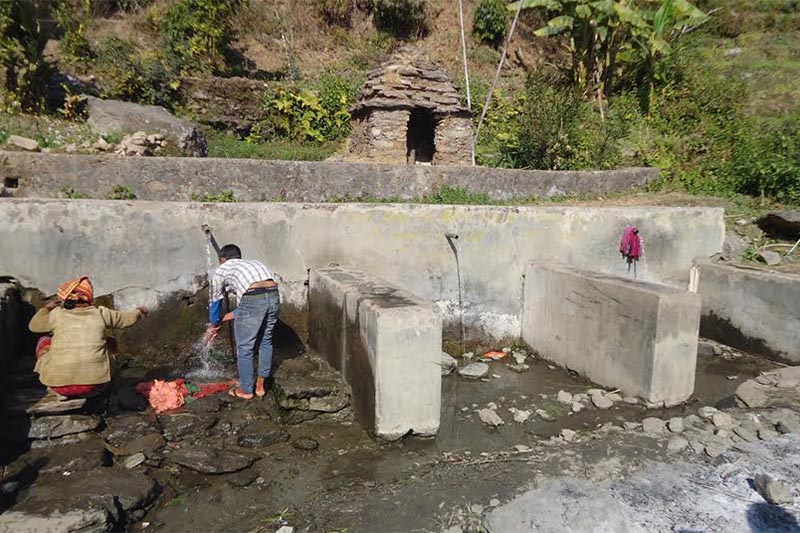Untouchability thriving in rural Bajura
Bajura, April 25
It has been more than 56 years since caste-based discrimination and untouchability were criminalised in the country. Laws have been amended frequently seeking harsher punishment for anyone involved in such practice. However, untouchability is still thriving in the rural areas of the country.
Construction of separate spouts for drinking water for Dalits in Pipalgaun of Khaptad Chededaha Rural Municipality in Bajura is nothing but a mockery of all the laws that criminalise caste-based discrimination and untouchability.
Construction of separate water spouts for Dalits and non-Dalits shows how deep-rooted untouchability is in the district.
Kunwars, Thapas, Kumals and Luhars comprise the majority of population in the village. Kunwars and Thapas are non-Dalits, while Kumals and Luhars are Dalits. Of the 28 households in the village, 12 are Dalits.
A local, Jogi Kumal, said they were compelled to construct separate water taps after people from the non-Dalit community did not allow them to fill water from the taps built for all villagers. The Dalits said they had to face harassment and abuse if they touched the taps. “Non-Dalits even scolded our children for touching water taps,” said Tara Kumal, a local. She added they had to face serious water crisis after non-dalits did not allow them to fill water from the public taps meant for all.
People from the Dalit community also complained they were discriminated and ill treated at social gatherings and events. Meanwhile, non-Dalit leader Surat Thapa refused to accept there was any caste-based discrimination and untouchability practised in the village. He said separate water taps were constructed for people’s convenience.
Besides Pipalgaun, separate water spouts have been constructed in Gothpada and Granga of Chhededaha Rural Municipality and Basure and Malta of Budhiganga Municipality, among other places, in the district.
Dalit leader Kashi BK said untouchability was rampant in the rural areas of the district. He said Dalits had to bear the burnt of the ill-practice for generations. BK further said many government and non-governmental organisations were active in the district to end untouchability, but not much had changed.






